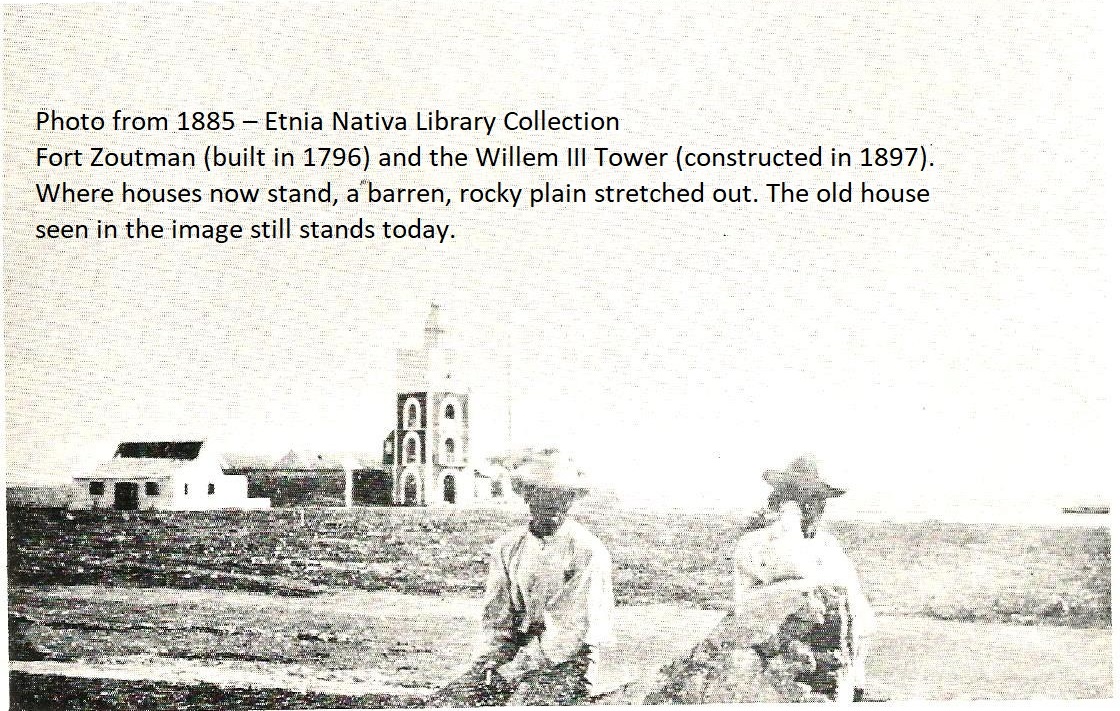Booking a magical glimpse inside Etnia Nativa is easy!
Article by Etnia Nativa call us 592 2702 and book your experience!
The narrative of Etnia Nativa—which means ‘Native Ethnicity’—emphasizes the importance of reclaiming Aruba’s cultural identity and heritage. Through this platform, it offers an authentic indigenous perspective, educates the public, and inspires readers to embrace the mindset of an ‘island caretaker.’
In this new episode, we share anecdotes from island life in 1825, seen through the eyes of Reverend Gerardus Balthazar Bosch, the first regular minister from Curaçao to visit Aruba. He is the author of Journey through the West Indies and through Part of South and North America, a book filled with vivid and charming accounts of our island and the events he personally experienced.

In his book, Reverend Bosch emphasizes that the Arubans were simple, helpful, and remarkably honest. According to him, every business commitment—even those agreed upon only verbally—was fulfilled with utmost loyalty. Although occasional quarrels occurred, these were to be expected, given the two main sources of friction on the island: the small size of the elite social circle and the dense web of family ties. Due to frequent intermarriage, Bosch notes, most prominent residents were related—often as cousins or brothers-in-law.
He describes the lifestyle as ‘most monotonous,’ a monotony heightened by the island’s uniform climate, broken only by the occasional downpour. Bosch also observes that, with few exceptions, reading was not a common pastime. He attributes this to a misinterpretation of an old maxim, passed down by ancestors who believed that reading could drive a man mad.
In his writings, he notes that a ship arriving from the opposite coast would occasionally break the monotony of island life, prompting an exchange of questions and news. However, a ship from Curaçao brought far greater excitement—not only offering oral accounts but also delivering letters and the much-anticipated Curaçao newspaper.
If any of the island’s inhabitants had visited Curaçao, their return was often marked by vivid storytelling. They spoke of the grand buildings, the many carriages, the splendor of the clothing and furnishings. They never failed to mention paying their respects to the governor—and especially the warm reception from the secretary.
Surely, such an enviable experience would have inspired more frequent travel to Curaçao—were it not for the treacherous journey. Battling wind and current in small boats made many islanders wary of the sea.
From time immemorial, the commandant had served as the island’s oracle, wielding absolute power and authority. In addition to the two soldiers stationed at the fort, he often relied on the so-called ‘captain of the Indians’—a white native who carried out his orders. The commandant resolved all disputes, even those arising within families.
Reverend Bosch wrote that during his early visits to Aruba, he attended several sessions of the local tribunal. The proceedings amused him so much that he reportedly laughed out loud. The cases brought before the court, he observed, reflected the simplicity of the island’s lower classes.
In one instance, a woman filed a complaint with the commandant against her neighbors, who had thrown stones at her cabin. To support her claim, she brought what she called the ‘corruption’—a basket overflowing with large stones she had collected from around the bay.
On another occasion, Bosch recalled hearing the commandant reprimand a man by quoting the commandment that a son must honor his father and mother. At first, Bosch assumed the man being scolded was the father, since he appeared to be over fifty. But to his surprise, another man—seventy years old, yet more agile and vigorous—was brought in. This man was, in fact, the father. He had reported his fifty-two- or fifty-three-year-old son, a ship’s captain, for insulting him.
After hearing both the plaintiff and the accused, the commandant dismissed them with a reprimand. It turned out the father was not entirely innocent: during the dispute, he had been drunk—a condition that, according to Bosch, was not unusual, as the old man’s craving for rum seemed only to grow with age.
If you’ve enjoyed learning a bit about our ancestral stories and want to explore the true identity of the Aruban people, we invite you to visit Etnia Nativa—the only “living museum” of its kind in the Caribbean, celebrating the island’s rich mestizaje (cultural blending).
Founded in 1994, Etnia Nativa has been a cultural pioneer, helping to establish key institutions such as Aruba’s National Park, the Archaeological Museum, various artisan foundations, and other community-driven initiatives.
Connect with the spirit and soul of Aruba’s ancient heritage through a one-of-a-kind experience. Whats App +297 592 2702 etnianativa03@gmail.com















